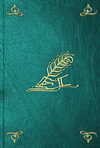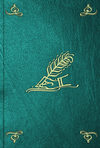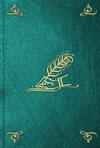Loe raamatut: «Private Letters of Edward Gibbon (1753-1794) Volume 2 (of 2)», lehekülg 24
576.
The Hon. Maria Holroyd to Edward Gibbon
Coblentz, Oct. 21st, 1791.
Our Adventures since I wrote from Strasbourgh have been very numerous, & if every body had been equally disposed with myself to be entertained with them, they would have lost much of their unpleasant circumstances. Papa had determined to go from Strasburgh to Manheim by Rastadt; but the Inn keeper advised us to go on the other side of the Rhine, as we should find the Inns all full in Germany & the Post horses very bad. The Rain was incessant all day & had continued for two days before. We found the Roads very bad & lost our way in a large forest; quite dark; amidst many ejaculations from Mama. When we at last arrived at Girmenheim, where we were to sleep, we found the Inn quite full. A Commission was there from Manheim to keep the Rhine in order, who has heard so much lately of Liberty on both sides, that he had a mind to make the experiment, & has strayed over the neighbouring meadows, unmindful of the excellent Caution given to a Brother River – "Thames, ever while you live, keep between your banks." We were put into a small room, where a Company had just finished supper. Travellers are not often, I imagine, so unfortunate as to go that road, if I may judge from the astonishment and, I hope, admiration our Appearance caused. The Doors were opened and the Room was lined with Spectators, who gazed at us in silence for near a quarter of an hour – more to my amusement than Mama's. There was only one Room where we could sleep – & we all arranged ourselves in three Beds, after having quieted some delicate scruples of Papa's, who proposed sleeping in the Coach – however by putting out the Candles nobody found it necessary to blush.
We left this charming place very early, breakfasted at Spire and arrived at Manheim early enough to see all the Lyons before dinner. I was much entertained with the Gallery of Pictures in the Elector's Palace. It was much superior to anything I had seen. The Library is very handsome. Papa went to the Play in the evening & made an acquaintance there, who he brought home with him, & talked Commerce and Agriculture, till near one in the morning. The next day we went to Mayence, & the day after saw the Castle, the Provost's house, the Cathedral, &c., and left Mayence at two o'clock in a very tolerable Boat. But the Wind was quite contrary, & it was very late when we arrived at Bingen. Mama did not take a fancy to Navigation in the least. For my part I enjoyed it very much, as the Banks of the Rhine, particularly from Bingen to Coblentz, are very picturesque. The great number of Castles made me imagine myself in the Age of Chivalry, & I almost persuaded myself I was a distressed Damsel carried away against my Will. The next thing, of course, was to expect a brave Knight to set me free, but as none made their appearance, I was obliged to quit my romantic Ideas, & my Castles in the Air, of which I had plenty, as well in my head, as around me. In plain English, I was much pleased with the day's journey, & Mama was pretty well reconciled to seeing Water all round her, which was at first a great grievance.
COBLENTZ AND WHITE COCKADES.
Our famous Adventures begin here. We arrived at Coblentz180 at five o'clock last Wednesday, & found every Inn in the Town full of Panaches blancs. After staying three hours in the Boat, with difficulty Papa found one Room, with one Bed, without Curtains & no other furniture of any kind in it. We preferred this to sleeping in the Boat, the only alternative, & accordingly we females slept on Mattresses upon the ground. As there were no curtains it was impossible to admit Papa of the Party, & he remained all Night in the Boat. The Account that was brought us of the Room we were to sleep in, was that between forty and fifty Officers were in two Rooms at each end of ours, which opened with Folding Doors. Upon a nearer enquiry, the number was reduced between 10 & 20 – but they are tolerably quiet, considering they are Frenchmen. Yesterday was passed enquiring for Lodgings, & by the help of the Duc de Guiche,181 the Woman of the house was prevailed upon to give us three Garrets, perfectly unfurnished – but this we considered as charming accommodation compared to the higgledy piggledy Style we had been accustomed to – but the Ground is still our Bed.
Papa has found out a great deal of amusement for himself. He was presented yesterday to the Elector,182 Monsieur,183 Madame, the Comte d'Artois, the P. of Condé and his Son; to-day he dined at a very large dinner at the Prince of Nassau's184– & is now at the Play in Made. de Nassau's Box, who was very desirous of our Company, but Mama is not fond of violent measures. The Comte de Romanzov185 is here, Ambassador to the Princes from the Empress Cat. The Bishop of Arras186 is not here; but the Duc de Guiche is every thing that is delightful, & Papa has not been at a loss for the Bishop. Our amusements may be mentioned in very few words. We have seen the citadel. We go from here early to-morrow morning – in our Boat. The Weather is very unfavorable to us. Only that you might justly make the Observation, "If you are sensible of your fault, why do you continue to offend?" I would apologize for the length of my Letter. But while you allow me to write to you, I do not think I have quite left Lausanne – & I never know how to leave off. Distribute our Love and compts properly.
Believe meEver affec. yours,Maria T. Holroyd.
I forgot to say we found our Letters here. Mama desires her Love to Severy & many thanks for his Letter. I have taken a great deal of pains to persuade her to write to him; but she has not resolution enough to take up her pen. I must whisper to you we were disappointed at not hearing a few lines from you.
577.
The Hon. Maria Holroyd to Edward Gibbon
Brussels, October 29th, 1791.
It is probable that this my fourth Letter may remain unopened in your Pocket, but I shall leave that to Fate, & only think of convincing you, that I still remember Lausanne & my promise. I like to let People know how unreasonable I am, & therefore I will tell you I had faint hopes of finding a few Lines here, either written or dictated by you. I frequently ask Mama, do you think they are talking of us at Lausanne? & she generally answers – I daresay not; so I should have had a great deal of satisfaction in shewing her, that you thought so much of us as to make a violent effort to tell us so. We have proceeded on our journey with great success from Coblentz to Brussells, & to-morrow go to Antwerp. We arrived here on Thursday from Louvain – the Road was so bad & the Post-horses moved in such a Swiss manner, that we were four days coming from Cologne.
The first day we slept at Juliers, the second at Liège, the third at Louvain, & the fourth (as I had the honour of telling you) we came to Brussells, & fortunately arrived at 'L'Imperatrice,' the only Hotel where there was a single Room unoccupied, just as the Princesse de Salms was moving off – & took possession of her apartments with great satisfaction, as we expected Coblenz accomodations.
THE SIGHTS OF BRUSSELS.
We stayed but one night at Cologne, as the Maréchal de Castries was not there, & the Town possessed no other Charms to tempt us to stay, for it is the most dismal place I have seen. The Maréchal is here, & Papa has had a long conference with him. Luckily for us, Papa has neither met with a Quarter Master nor a Commercial man, nor a Farmer here, so we have seen a great deal and been very much amused. We saw the Palace of the Archduchess, a league out of Town, yesterday – & it is fitted up with more Taste than any thing we have seen in our travels. The rest of our time has been spent in Churches, the Arsenal, & some good Collections of Pictures. I have not time to be prolix in my narration, which you will perhaps not be sorry for, as you are not as fond of a long letter as I am. Mama is pretty well, but will not be sorry to find herself at her own fire side again.
Remember us to those who remember our existence – you will not have much trouble, for I suppose you will only deliver the message to yourself – I suspect nobody else of thinking of us. Louisa desires I will not forget her best Compts to M. Mentrond; she does not choose to suppose he can forget her. I expect to hear a great deal of Mrs. Wood– or if any body else has supplied her place in your heart. When you do write, if such an unlikely event should ever take place, pray tell me something of everybody; I shall like to see the names of those I was acquainted with, & while I read yr letter, shall fancy myself at Lausanne.
Believe me,Ever sincerely yrs,Maria T. Holroyd.
I write in such haste that you must excuse faults of Style, Writing, &c.
578.
Lord Sheffield to Edward Gibbon
Calais, 5th Nov., 1791.
After various and sundry embarrassments, here we are safe. The pleasure of the visit being over and the sorrow of departure come on, it naturally occurred in aid of my concern what a damned Fool I was to undertake such an operation. To correct such cogitation, the distractions of the Rhine were some relief. The state of its neighbourhood is at this time very interesting. It was curious to find the Princes and prime Nobility of France thankfull to be allowed to exist on a small angle formed by the Moselle and the Rhine. An army of officers, but not a common man. For the sake of visiting the Garrisons of Alsace, I went the whole length of that Province. Levade's letters were of essential service to me. I thankfully wrote to him when I had proceeded far down the Rhine. Probably I furnished some details, with which he probably has furnished you. I know not whether I mentioned that Huninge and Brisach are in good condition. An incompleat Regiment of two battalions in each place and some Dragoons, not sufficient garrisons, but some cantoned Troops might be thrown in if required.
MILITARY FORCES ON FRENCH FRONTIER.
The Regulars at Strasburgh are 6760, including 1100 Horse and 1300 artillery. They say they have some 7000 National Guards, I doubt it. They are the best I have seen; and yet they are very poor stuff for Soldiers, and many are not cloathed. I dined with the Colonel of Carbineers, and saw the finest regiment of France in detail, and also a Swiss Regiment (Viguier), one of the best. Some of the regiments are not more soldier-like than the National Guards. The Democrates say that the officers, being Aristocrates, neglect the men on purpose, and wish the regiments to be ruined; 40 officers had quitted one regiment in Alsace. In short, only seven remained with it, including the Colonel. The Park of Artillery at Strasburgh seems very compleat. It is the second in the Kingdom. A Train is ready for 40 Battalions. The Province of Alsace is at least half Aristocrate. I passed the evening and supped at the Mayor's while at Strasburgh. He and his Lady (a clever dame) thorough Republicans. Observe the Regulars in the two departments of the Rhine are commanded by a German,187 and the National Guards by a Lt. – Colonel who is a Livonian. Mirabeau's Corps seems a miserable collection; several deserters came from it while I was at Strasburgh. Finally I flattered myself there would be a compleat Brouillerie between the regulars and the National Guards before I left that place. The officers of the latter are naturally disposed to be very absurd. The double pay of these troops soldès is likely to have an excellent effect on the Troupes de ligne. I found about 100 French officers at Manterin. Towards 900 at Worms. Bouillé and a certain number are at Mayence.
Including upwards of 900 of the Gardes du Corps and near 20 Generals, there are 2500 Officers at Coblentz. I was very graciously received by the Princes. They give a supper every night, where I had the amusement of being introduced to Marshal Broglie,188 &c., &c. The Prince of Condé and Duc de Bourbon were there on a visit. Romanzov has brought credentials and two millions of livres French from the Empress; Calonne is at Baths not far distant for his health; Burke's son had been sometime at Coblentz and was gone to England with Cazalés. Our King has written a very amicable letter to the Princes promising neutrality. I went to Cologne to see the Marshal de Castries. He was gone to Brussels, where I found him. At every inn I found 20 or 30 French Officers, the road is covered with them from Brussels to Coblentz. Nothing can be worse timed than this desertion. It is a Phrenzy and was like wildfire. They would be much better with their regiments and ready in the country to protect Friends and to avail themselves of circumstances. The most sensible of the French disapprove this migration. The officers leave their Regiments without concert with the Princes, who have not lately encouraged it. There seems to be no particular plan at present but to wait events. I unfortunately missed the Abbé Maury passing to Coblentz. I wished to know him. He is a Cardinal in petto. He is to have the Arch-Bishop of Sens's Hat. The regular regiments were long ago ordered to be completed to the war establishment, but on an average they have not above half their complements, and on the frontier of the Low Countries there is not an officer left except Soldiers of Fortune.
L'Esprit de Revolution is not likely to flourish again for some time in the Pais Bas. I found Imperial and Electoral troops in possession of Liège, and new taxes laid to pay expenses, viz. on Dogs, Servants, bachelors, &c. The Discontents in the Austrian Netherlands are not likely to be of much consequence, a great part of the country was miserably duped and the whole thrown into such an execrable state, that none but the lowest of the creation can wish for another experiment at a Revolution. The leading party among the enemies of the House of Austria being Clergy and Aristocrates cannot coalesce easily with the Democrates of France. All the Provinces except Brabant are content. Many say a counter-revolution in France is impossible, because the Mass of the People are of one mind. Not near so much as the Austrian Netherlands were. There almost every man was a Patriot, yet the moment an army appeared there was not a struggle. The different extent of country, &c., prevent a correct comparison.
However, it may be observed that France has not a neighbour that is not unfriendly to the Revolution. I have the worst opinion of the French Army. The National Guard behaved execrably at Nancy, where alone they have been tried. We indeed were told the contrary. Some Swiss officers (Democrates) who acted against the regiment of Chateau Vieux189 have given me details. You may be sure that the Regulars and National Guards will not agree. I am satisfied that of those officers who remain with the Regiments, almost all except soldiers of fortune are aristocrates. The soldiers do not desert, but they say they will go to Paris. They will enter into the Gardes Nat. soldès, and they go where they please; nobody can stop them. Yet with such a King the situation of the Aristocrates is very difficult. Divisions will naturally take place, the Kingdom is en traine to be torn to pieces. A foreign army on the Frontier or advancing to Paris might unite them, therefore it may be better to wait events. At the same time I have not a notion that a French army would fight under its present circumstances.
THE MEETING AT PILNITZ.
It was a comfort to see the excellent Bohemian and Hungarian Infantry in the Austrian Netherlands. They are in fine order. The Treaty of the 23rd of July last between the Emperor and the King of Prussia has been well concealed.190 It is defensive. The supposition is that Prussia is dissatisfied with England. If Russia should accede to the Treaty (which is not thought unlikely), we shall be compleatly left in the lurch.
Maria has been alert and well-disposed to your correspondence. She seemed pleased with the office, but she will expect an answer. She has saved me from writing sooner. From Brussels we went to Antwerp, Ghent, Bruges, Ostende, and Dunkirk to this place. Mi Ladi continues the same. I should have stopped more than three days at Brussels if I had not been afraid of the division of Mrs. Maynard. Say everything kind for us to the de Severy family. If Mi Ladi does not reply soon to the Fils, I shall. I found letters at Brussels by which I learn that your £2000 is accepted by the Navigation Society, that Mr. Taylor has found a mortgage for £5000 in Yorkshire. He says somewhat of its being more convenient if the money is not paid till a little time hence, and I also learn that my worldly affairs, and the Navigation, have gone on as badly as might be expected from my absence.
Remember us to Mrs. Grevers.
579.
Lord Sheffield to Edward Gibbon
[Incomplete in original.]
The increase of Mi Ladi's woman, and apprehensions thereon, made it necessary to shorten my visits. You have heard of the little accident on board the Packet. You know dear Puff has a great dislike to cats. About midnight, midway between France and England, an hideous noise like that of a cat in the act of being strangled was heard. Puff barked and was furious. I looked out of my den, and beheld it was an human kitten that proceeded from Mrs. Maynard who was prostrate on the floor. My Lady also incumbent there. Maria contemplative and Louisa astonished. Not a creature on board the Packet but ourselves and the crew. We never know what we may come to, and above all we should not have guessed that Mi Ladi was to become a mid-wife. The mother and child could not have been better, (and have continued so,) if all the obstetric Faculty of Paris and London had attended. The mother was so well that she expressed the greatest anxiety to go with us the day following above 80 miles across the country to this place. We left her in good lodgings and in good care. The want of her prevented the Ladies from passing two days at Lord Guilford's. We found two letters from him at Dover and a dozen messages. I went and had a pleasant dinner with him, and returned at night to the Ladies.
I must now come to the unpleasant part, your business. Immediately on my return I wrote to Taylor about the £5000 mortgage. I have a letter full of disappointment. The person to be paid off has accepted low interest. He complains of being frequently thus treated. Don't bother yourself. I still hope soon to settle the business.
I wrote you a long letter from Calais.
580.
The Hon. Maria Holroyd to Edward Gibbon
Sheffield Place, Nov. 13th, 1791.
It is with a mixture of satisfaction & regret, that I complete my part of our engagement in writing this Letter. I find great pleasure in being returned to dear, precious Sheffield, & in telling you so, because I am sure you will be glad to hear we are safe and well; but writing to you the last letter is like a second taking leave, & tho' I have been near six weeks upon the journey from Lausanne, that moment is still as fresh in my memory as it was the next day, & the recollection of it as unpleasing. If I dared I would ask to be allowed to tell you we were alive, now & then when Papa & Mama were in an idle mood, & to be allowed to hope for an answer once in two or three years, in your own hand or not, as you thought proper or found convenient.
DISTRESSES UPON THE SEA.
I was very glad Papa wrote a long letter from Calais, as his information about things in general would be more interesting to you than mine, as I suppose he gave you a full account of our route from Brussells to Calais. I will only tell you that I was very much amused at Antwerp, & that I catch myself, now & then, making believe to know a good Picture from a bad one – having seen so many excellent ones lately. We left Calais last Sunday at 9 in the morning, having waited three days for a favorable wind, & at last in despair, set off in a perfect Calm, which prolonged our passage 24 hours – which was uncommonly tedious, & very bad luck, as our Passage from Brighton was as tiresome in coming over. However to pass the time, or to diversify the amusements of the Passage, which from the sickness of the Company would have preserved some degree of sameness, Mrs. Maynard with Mama's assistance, half way between Calais & Dover, presented the cabbin boy with a Sea Nymph; which with its Mother are now as well as can be expected, at Capn Sampson's house at Dover. I have heard that Sailors, when they come from a voyage, find great pleasure in talking of & recollecting Toils & Dangers past – such is our case; for we have laughed very heartily here, at our Distresses upon the Sea – which certainly at the time was no laughing matter.
We found the inhabitants of S. P. in excellent preservation & quite rejoyced to see us returned – most of them, when we left England, being convinced we should be all massacred by the National Assembly in a very short time. I hope the quiet life of this place will soon restore Mama's health & spirits, who desires her kindest remembrances to you & those we love at Lausanne. Do not let anybody forget us, for we forget nobody.
Ever much yrs,M. T. Holroyd.



















